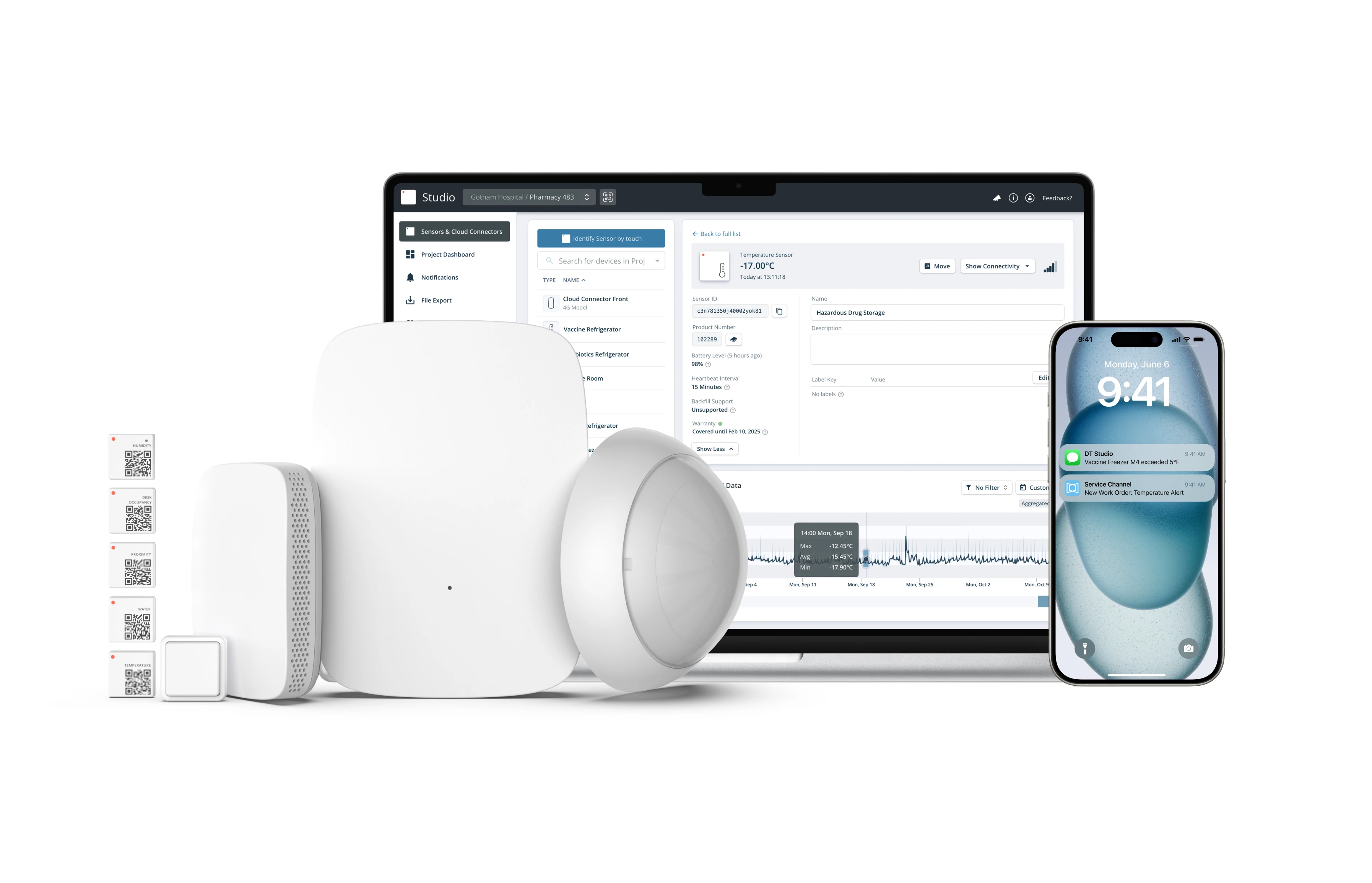How Sundvolden Hotel Reduced Energy Use and Saved 1GWh

When Sundvolden Conference Hotel had challenges controlling heating, cooling, and energy consumption throughout its facilities, its management turned to Energy Control. Using data from Disruptive Technologies sensors, Energy Control provided the insights the hotel needed to optimize its heating, ventilation, and air conditioning systems, resulting in significant energy savings and dramatically reduced energy bills.
“Loved by Guests, Admired by Competitors”
.png)
That is the vision of Sundvolden Hotel, a conference hotel near Oslo and a member of the De Historiske Hoteller group. The hotel's origins date back to at least 1648, and it has had many owners throughout its history. However, in the 1960s, Arne and Bjørg Moe Laeskogen, and later their son Tord and his wife Cecilie, revitalized and modernized the hotel, establishing it as one of Norway's leading conference venues.
Today, Sundvolden Hotel is admired by its peers for its dedication to service excellence and investments in sustainability and innovation. One example is how the company addressed challenges related to energy inefficiency.
A Centuries-Old Challenge
A hotel that has developed over centuries might be full of charm, but multiple buildings, all from different periods, come with real energy challenges.
Tord Laeskogen explains, "We have several heating and cooling systems, which are not necessarily in sync, as well as several heating sources. I knew we were wasting energy, but we had no visibility into which areas were energy drains. We needed insight into how much energy we were consuming and where, and that’s why we engaged the services of Energy Control."
.png)
The Perfect Partner: Energy Control
As the name suggests, Energy Control specializes in helping companies control their energy consumption. Through its EC-Dashboard, it visualizes data such as temperature, CO2, humidity, and water collected directly from buildings and provides recommendations for operational enhancements—typically HVAC optimization—that result in significant energy savings.

Understanding Consumption for Data-Driven Improvement
The Energy Control team got to work collecting data to understand the baseline for improvement. They installed temperature sensors in the bedrooms to compare room temperature with occupancy information to identify if rooms were being heated or air conditioned while empty. In meeting rooms, they combined data from temperature sensors with CO2 levels to understand ventilation requirements. Temperature sensors were installed on the pipes to determine which heating systems were in use and when. The ultimate goal was to make sure that the hotel was using its energy where the people were and that all systems were working efficiently and only where needed.
Energy Control put together a 3D scan of the entire building structure, including all the technical rooms, and for the first time, Tord had a full overview, a digital twin, of the hotel in one place.
Technology & Teamwork
Once it became clear how energy was consumed throughout the buildings, improvement initiatives could be implemented. The insight provided by Energy Control meant that the hotel could change both routines and processes to reduce wasted energy consumption while ensuring optimal comfort for guests.
"We discovered faults that would have been challenging to find without the sensors. Keep in mind that we are a large hotel with many different buildings and rooms; getting a complete overview can be demanding," says Laeskogen.
.png)
The people responsible for the ventilation, heating, and electric systems are all actively involved in identifying which changes to make; the sensors just provide the data to identify areas requiring attention. The changes could be as simple as manually adjusting the heaters or ventilation systems or investing in more modern equipment that can actually be adjusted automatically.
"We have corrected the obvious faults, resulting in immediate energy savings. Previously, we had to go around and check everything, which was impossible to do in a day. Now, we check all the data in the EC Dashboard to ensure everything looks right. It takes us a few seconds," says Laeskogen. “Life is completely different now. We have full insight into our energy usage and how the different components work together to heat, cool, and ventilate the hotel efficiently."
Bottom Line
Through the partnership with Energy Control and the implementation of cutting-edge sensor technology, the hotel has not only significantly reduced its energy consumption but also established a new standard for energy efficiency in the industry. By embracing data-driven insights, the team at Sundvolden Hotel ensures optimal comfort for guests while minimizing environmental impact. With a newfound understanding of energy usage and equipment performance, the hotel is paving the way for a more sustainable future, setting an example for others to follow.


Data for Energy Optimization
Content That Might Interest You
Get Started





.png)
